Search
To search for an exact match, type the word or phrase you want in quotation marks.
A*DESK has been offering since 2002 contents about criticism and contemporary art. A*DESK has become consolidated thanks to all those who have believed in the project, all those who have followed us, debating, participating and collaborating. Many people have collaborated with A*DESK, and continue to do so. Their efforts, knowledge and belief in the project are what make it grow internationally. At A*DESK we have also generated work for over one hundred professionals in culture, from small collaborations with reviews and classes, to more prolonged and intense collaborations.
At A*DESK we believe in the need for free and universal access to culture and knowledge. We want to carry on being independent, remaining open to more ideas and opinions. If you believe in A*DESK, we need your backing to be able to continue. You can now participate in the project by supporting it. You can choose how much you want to contribute to the project.
You can decide how much you want to bring to the project.
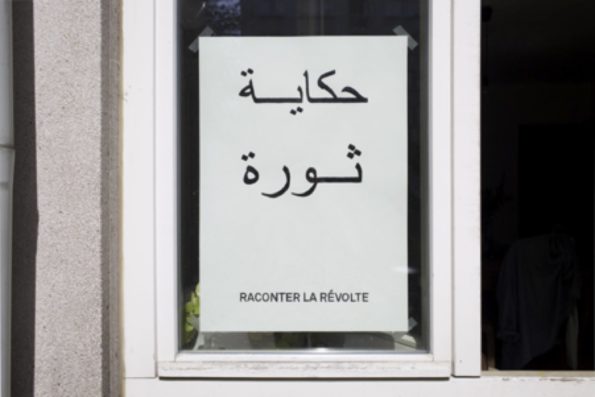
MARC CAELLAS, writes books and directs play that by convention we call “theater”, Barcelona, July 13 th
I don’t know who’s responsible for such a fallacy. You’ve been misinformed. I don’t work and I don’t plan to work for the next few months. I am aware of the risks involved in my determination. I do not care. In my street, without pretense, I’ve always had a bad reputation. Never working again is my leitmotiv. I hope to survive to tell about it.
CLÀUDIA RIUS, cultural journalist, July 13th
I work to earn money, because above all I am a person who needs to live in a structure, pay the rent and buy food. But I find myself in the paradox that if I had money, I would do exactly the same thing, which tells me that relieved of all economic and social needs, I write for something else. But I don’t want to romanticize my work. For me, being a cultural journalist is a job. Visiting museums, interviewing artists, reflecting on works of art is a job. The hours I spend on them must bring me some financial gain, because if not, I’ll have to devote myself to something else. That, on top of all this, I am a person with an instinctive passion for observing, thinking and writing, is a completely different matter that would not answer the question asked.
MARÍA ALCAIDE, artist, Córdoba, July 13th
I continue out of inertia, because I’m tired and I can’t do anything else. I don’t know how to stop, even though I try. I don’t know how to not work, because I turn that reticence to work into pieces and that is to keep on working. I am hyperproductive. There are times of the year when I’m hyper-rejected.
I think I have to keep on doing to face rejection, and I don’t mean all those times when a file is not taken into account or a project goes wrong, but rejection to certain themes, to certain attitudes, to a class, to a background, to genders and to forms.
I guess I’m an idealist…
Ne travaillez jamais?
Mais si! Même si on ne travaille pas, on est en train de travailler.
IAN WAELDER, artist, Frankfurt, July 16th
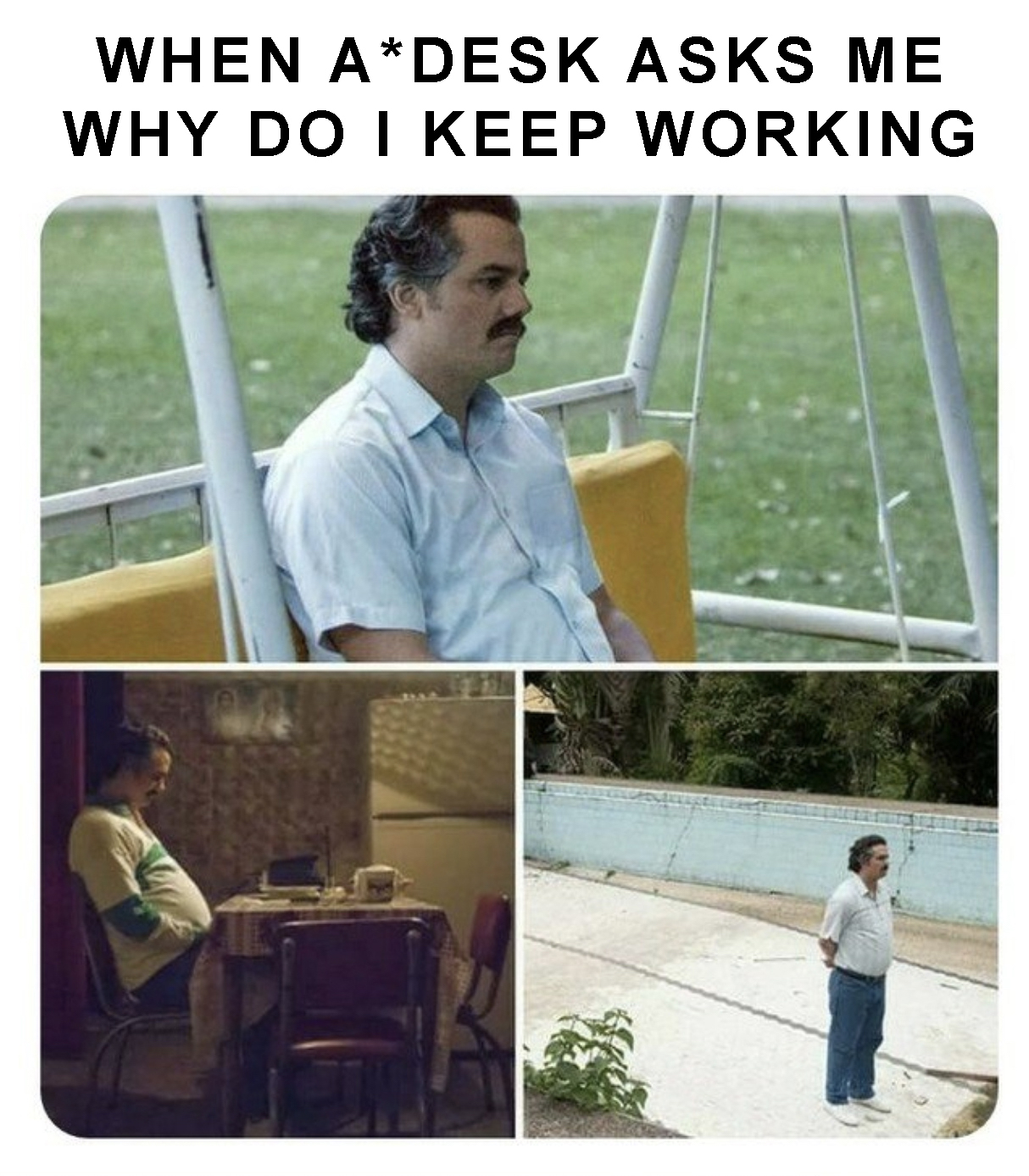
Before answering I want to put on record that as an artist or individual I believe I am writing these words from a pedestal of enormous privilege. More than anything else because in the last three years I didn’t have to worry about anything but going to my studio and continuing to do the things that go through my mind. And this situation leaves me too much free time to think and talk nonsense.
But all that could end today. So going back to the question, I have to say that since I learned that the word “work”comes etymologically from “suffering” or “torture”, I couldn’t help but read this question and let it resonate in my head these last two weeks as: “Why do you keep suffering and torturing yourself?” And I realize then that this question haunts many artists every morning because the ease of renunciation is so big for most of us, but we continue. And we gather in many cases the logical and necessary elements for the NO: lack of time, lack of income, depending on other jobs to dedicate ourselves to our “real” work or an interest from the public or the art world that does not fulfill one’s aspirations. Or you simply get tired of an environment like the art world that sells itself as progressive and is conservative to no avail, not to mention populated by wretched hypocrites. But one is no less an artist for working in the dark, and through art I have been fortunate to meet the most wonderful people. Still, returning to the list of cons, we want to hold on to the buoy despite being surrounded by piranhas. And people from the boat look at us in a funny way. I also think that all this I am saying is applicable to any shitty job – understanding “shitty job” as any position that offers shitty conditions. But it’s just that being an artist is as fucked up as it is magnificent. I could stop and look for suffering in something else, but I’m not capable of much more either, and that’s something I see as positive because it makes things easier for me when I decide to keep working. I don’t want to frivolize the concept of suffering, because in a social context it’s something very serious. Anyone who reads me and finds themselves in a really precarious situation must be dying to break my face. So let’s say I’m talking about a rather existential kind of suffering. And continuing to work – suffer – as an artist is, apart from love, the only thing that makes me feel that a certain degree of torture can be worthwhile, no matter how hard I try to think otherwise. In the eight years I’ve been doing artistic work – which from now until I die, assuming I die old, is nothing and therefore my suffering is minimal – I’ve understood that it doesn’t matter what other work I’m doing, that the halo of art is always lurking like a ghost that touches you on the shoulder. I keep working because being an artist is the most fucked-up option and I’m a masochist. And so I make the decision to condemn myself to this absurd trench that is art, to defend this absurdity within a world that doesn’t need us, let alone understand us. And maybe it’s better that way. Part of being an artist is being able to do whatever you want. And I think that for the most part, I keep working to be able to keep doing whatever I want. And with this last sentences I could have saved 80% of what I’m telling you.
JUAN CANELA, Independent curator and critic, Barcelona, July 17th
Because I firmly believe that in this uncertain future we face, the work of artists is essential to be able to imagine and generate forms of community and structures of life that challenge the status quo.
PATRICIA DAUDER, artist, Barcelona, July 17th
This is a question that does not make much sense to me. That is, I can give many reasons, at the level of professional and existential motivation that lead me to continue doing what I like and what I have been doing for 25 years, whether it is called occupation, trade or work. In my opinion there is not much interest in listing them, each one has its own.
Why continue to work in a sector that is neither valued nor appreciated, not only by the majority of society but often by the very agents who work in this sector? This may give rise to very different answers.
In any case, some questions that continually come to mind and that are related to the question asked are: why is there so little respect for art and work that is exercised with rigor and seriousness by artists and curators? why is the quality of artistic projects not too often the primary factor when a program or an exhibition is made? Why is criticism and self-criticism so scarce? Why is there so much fear of deviating from the general trend and so much lack of truly risky and personal works? And why do we accept all these situations so quickly?
I know that the conditions and the precariousness of the sector, explain some of these questions, but not always and not all and in any case, it should not be like that. And since no one is forcing us to continue working in this area, it would be good to consider what we can do to improve it, because otherwise it is to everyone’s detriment. Although I know that the current situation is very complicated, I believe that there is room to do things differently and better, being more critical and demanding with our environment and ourselves and thinking more about the benefit of the community and less about our own.
RAQUEL FRIERA, artist, Prats de Lluçanés, July 20th
I continue to work in artistic production because the effect of the work on me, on the people I work with and on others who access it externally, continues to compensate for the shortcomings of the contemporary art system (precariousness, inequalities, instability, elitism, competitiveness…) .
ARNAU BLANCH, artists, Barcelona, July 20th
Continuing to work has been and remains an issue that I have rarely questioned. On the other hand, I have had and still have many doubts, but most of the time they come from the need to know things like: what is my place in the artistic world? what do I feel satisfied with and what are the limits I set myself? Many more doubts appear and disappear over the years.
I keep working because I don’t see any other option to be in the world. I continue although I can imagine myself outside the exhibition circuit, doing and not showing. But working, producing, doing and perceiving the world seem to me to be one and the same thing. Therefore, I believe that working does not cease to be a way of existing and living the years that are left.
DIANA PADRÓN, curator and researcher, Barcelona, July 21st
I work because they told me it was a game, a debate, a dance, and yes, many times I have a good time. Because I have a commitment to the city where I live, to art, to criticism, to the public sphere. Obviously I work because it is imperative to be self-sufficient, but above all it is imperative to accumulate symbolic capital. I would find it obscene to equate myself with the salaried worker, our model is more that of the entrepreneur. I work to reproduce capital, to innovate in labor flexibility, to experience the ultimate in self-exploitation, and to be invited to fun parties. Paradoxically, I also work to imagine some kind of collective. Because in the end, let’s not be nihilists, there must be something in art that points to some sort of outside. I keep working in case one day, together, we invent another world. I also work because Gisela, who is a lovely, wise and super-powerful, has written to me to ask me why I keep working, and of course, I also work for love.
MARC HERRERO, artist, Barcelona, July 21st
Because it is my way of being in the world, when I am connected to desire, otherwise I tend to elaborate a neurotic discourse of suffering.
PACO CHANIVET, artist, Barcelona, July 21st
My approach to art has always demanded an explanation while challenging anyone who can give it, this contradiction repeats itself cyclically until faith in a possible answer is exhausted, transfiguring the real into something alien. But for a moment, I join in the game of putting words to what cannot be named: Why do I keep working? In my case the question is wrongly posed because it is not me who is working but someone who is being worked on. For what or who? I don’t know, but I sense that it is something that comes before me, that manifests itself through outbursts of panic and amazement, and that allows me to suddenly and briefly access the mystery of being alive.
BEATRIZ ESCUDERO and FRANCESCO GIAVERI, Barcelona, July 22nd
Since when is laziness considered the mother of all vices?
“Laziness frightens people and those who give themselves to it are persecuted, and that’s because no one has understood it as the truth, but they have called it “the mother of vices”, when it really is the mother of life.” Kazimir Malevich
Why wonder about the job and not about the rejection of it? In the next few years, in a decade or so, half of the current jobs will be executed by machines, in a process of unstoppable automation of the productive forces (See Inventing the Future. Postcapitalism and a World Without Work by Nick Srnicek and Alex Williams).
It is then convenient to start putting ourselves in a situation and think about not doing, about how we can effectively waste an enormous amount of time and a large amount of resources, to reconsider laziness under the prism of economic theory and of the events we have lived through in recent years; including the recent experience of a pandemic that has forced us to slow down forcibly.
Accepting the waste of our productive skills as something necessary and proposing a different use of time could generate an anomaly in the value system of contemporary society and articulate alternative ways of understanding life. Laziness is revealed as a form of resistance to contemporary hyperactivity; perhaps the only defense against the utilitarianism and short-sighted pragmatism typical of neoliberalism, which do not distribute wealth or ensure a dignified life. A way of recovering control over our time, which is unhinged and accelerated, and the absolutisation of an erroneous conception of the vita activa which, with its imperative of work, degrades the person to a simple animal laborans.
“You know, they ask me if I would continue to write if I was on a desert island and knew that no one would read what I wrote. My answer is emphatically yes. I would continue to write for company. Because I’m creating an imaginary world – it’s always imaginary – where I would like to live. This is how William S. Burroughs answers Conrad Knickerbocker in a 1965 interview published in the Paris Review. To ‘imagine worlds’ does not require work, but only existence, breathing and, above all, time to question what has become a defining category of our subjectivity: our employment. In clear opposition to the condemnation of being employed to survive, laziness brings out the most effective form of control and oppression: work. The king of the lazy would be, of course, Marcel Duchamp who already pointed out the problem in a categorical way: “it is shameful that we are still obliged to work simply to live, […] to be obliged to work in order to exist is really an infamy”.
Under the pressure of frenetic activity, the ambivalence, the indeterminacy, the complexity that, in the end, determine a true life, is indistinguishable to us. Only by destroying the clock that organizes our time can we give ourselves the necessary peace of mind to think, to understand the divergent positions, the otherness of a global world and to move towards alternative forms to an imposed reality. Sabotage the machine, escape from productive logics and exercise laziness as an inalienable truth, as resistance.
* this text is part of a wider research that will be published with the exhibition Sooooo Lazy. In praise of waste, from 26 November 2020 in Caixaforum Barcelona.
LUIS BISBE, artist, Barcelona, July 22nd
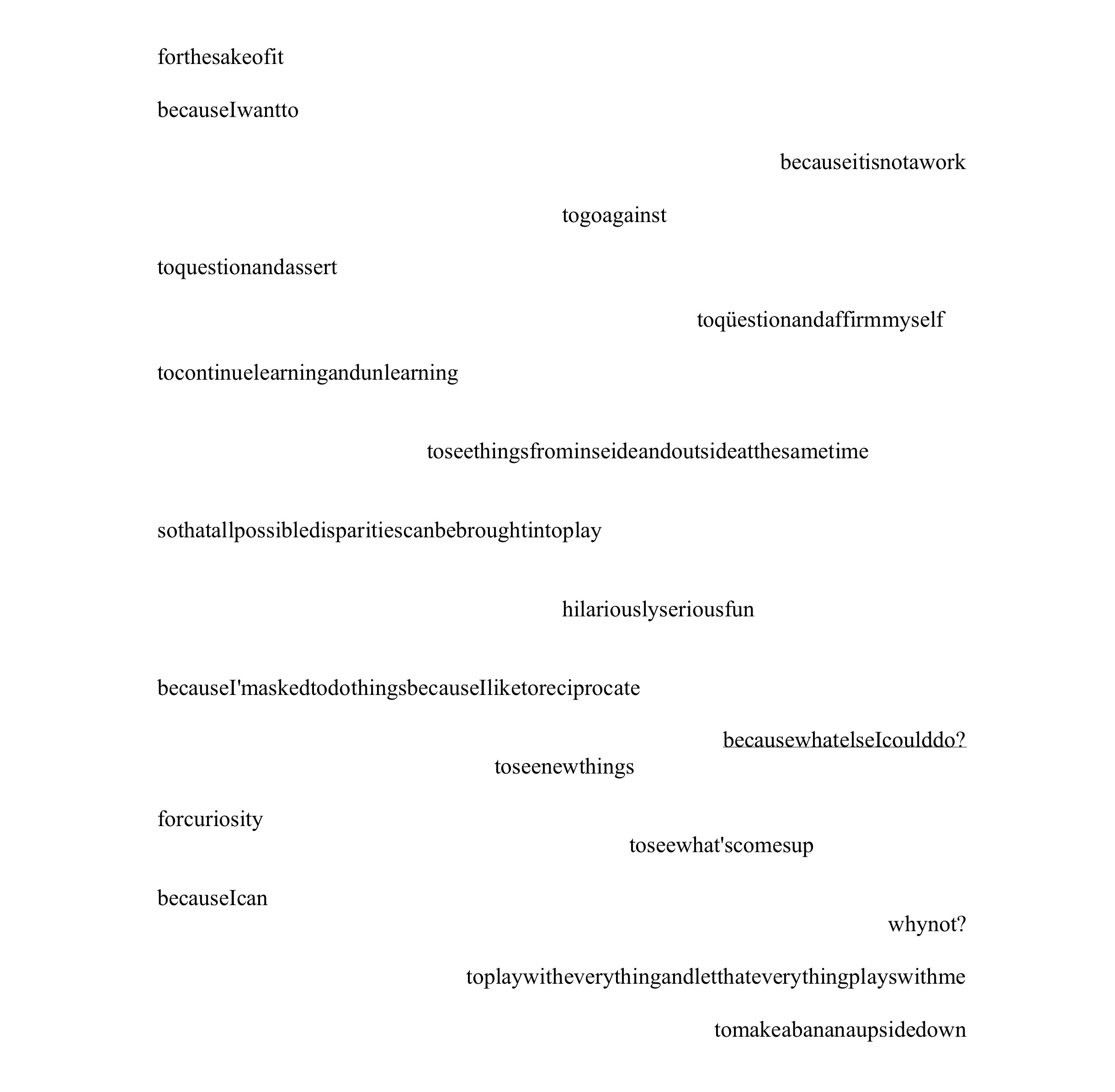
ADRIAN SCHINDLER, artist, Brussels, July 23rd
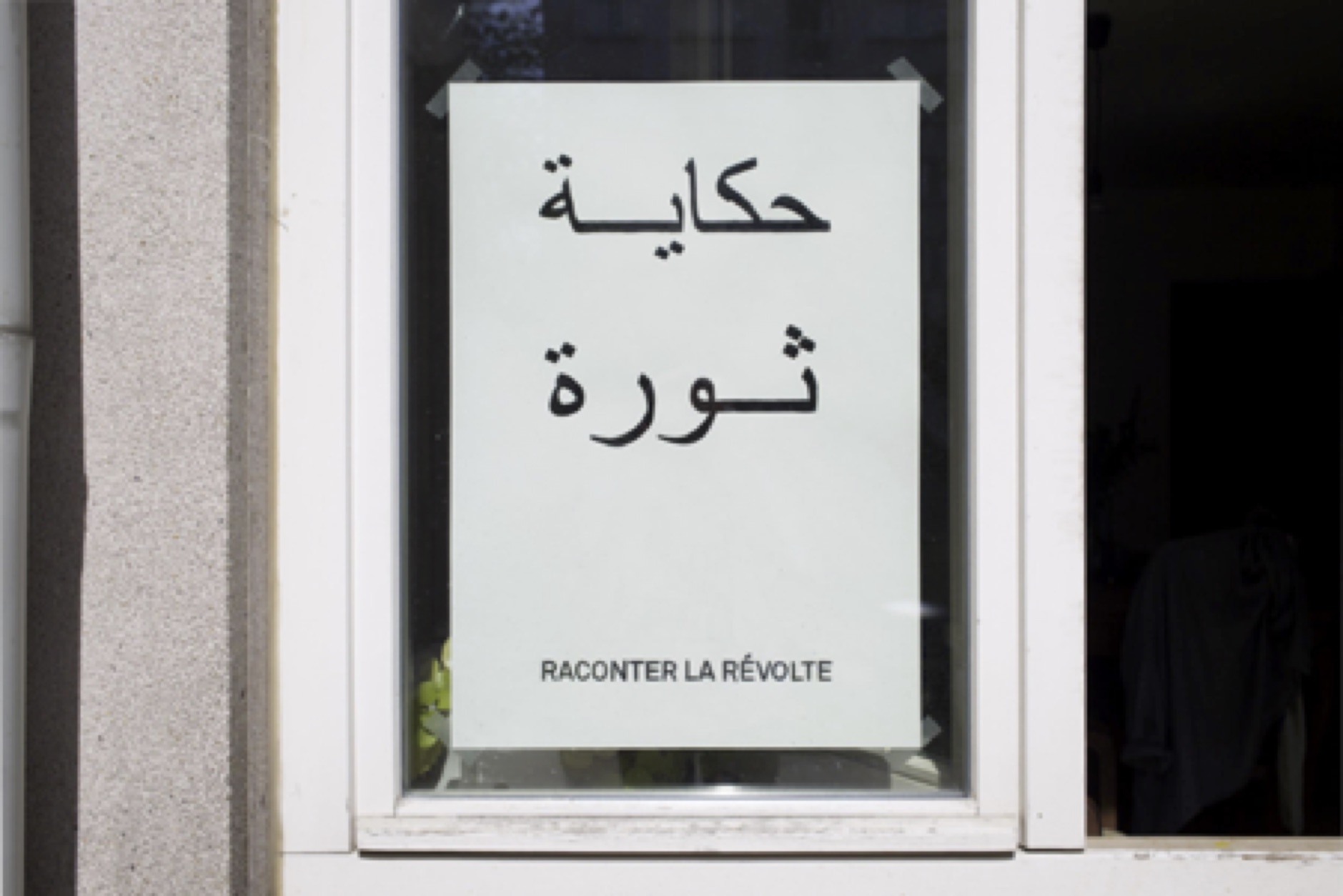
“Contar la revolta” (Recounting the revolt), one of the three posters of the project “Occupez ces mains rebelles!” (Keep these rebel hands busy!), Château Nour, Brussels, 2020.
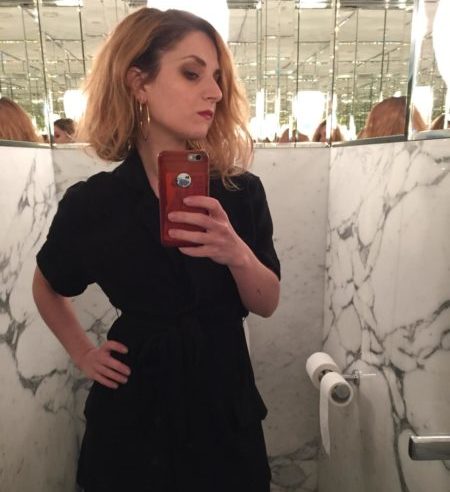
Gisela Chillida (Barcelona, 1987) is an art critic, independent curator and cultural manager. She writes regularly for the magazines and publications Bonart, Hänsel i Gretel, Núvol-Digital de Cultura, La Maleta de Portbou, Politica&Prosa and Diario Levante. Recently, he has published the book “Galeries d’art a Catalunya” and the catalogue of the exhibition “Tàpies/Alcaraz/Rubert” at Kunst Lager Haas in Berlin. Some of her exhibitions as a curator have been shown in the galleries Àngels Barcelona (Enésima Intempestiva), Arte Aurora (El pliegue y Seastanding) and Àcid Sulfúric (Europolis), the space Cera 13 (Luna y polvo) or in Fase Espacio de Creación y Pensamiento. Since 2018, she coordinates the Loop Discover Award, held within the framework of the LOOP Barcelona video art festival and fair.
"A desk is a dangerous place from which to watch the world" (John Le Carré)